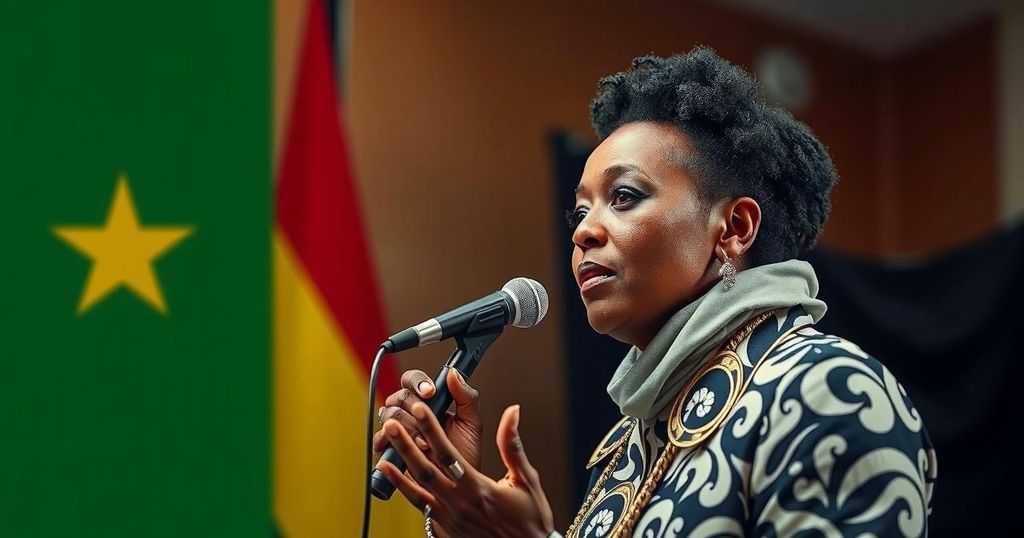Namibia has elected Netumbo Nandi-Ndaitwah as its first female president, securing 57% of the vote in a contested election that extended Swapo’s rule. Opposition parties dispute the results, citing electoral irregularities. Meanwhile, Nandi-Ndaitwah’s victory represents a significant achievement for gender representation in a predominantly male political landscape.
Namibia has made history by electing its first female president, Netumbo Nandi-Ndaitwah, in an election that solidified the ruling Swapo party’s dominance over the nation for the past 34 years. Nandi-Ndaitwah, who served as vice-president prior to her election, garnered 57% of the vote against predictions of a runoff. She emphasized the people’s desire for peace and stability following the official declaration of her victory. Her candidacy marks an important step for gender representation in a country that has been led by Swapo since its independence from apartheid South Africa in 1990.
Nandi-Ndaitwah’s political career spans several decades, beginning in the 1970s as a member of the underground independence movement. Her promotion to vice-president came after the passing of President Hage Geingob. Despite her victory, opposition parties have contested the election results, citing technical difficulties such as ballot shortages that caused an extension of voting, which they claim was illegal. Opposition leader Panduleni Itula received 25.5% of the votes with his Independent Patriots for Change (IPC) party, which represents a decrease from his performance in the previous election.
The election results reflect a significant political landscape in Namibia, where Nandi-Ndaitwah’s success came despite a regional trend of electoral punishment against entrenched liberation movements. While Swapo’s parliamentary vote fell from 65% to 53%, Nandi-Ndaitwah’s leadership is viewed positively, as she has maintained a reputation as a trustworthy and uncorrupted politician. As other southern African nations experience political turmoil, her election is notable for bucking the trend of dissatisfaction among younger voters in the region.
The recent presidential election in Namibia signals a significant milestone in the nation’s political landscape, particularly with the election of Netumbo Nandi-Ndaitwah as the first female president. This event follows a long-standing rule by the Swapo party, which has been in power since Namibia’s independence in 1990. Nandi-Ndaitwah’s election occurs against a backdrop of growing political dissent in southern Africa, where incumbent parties have increasingly faced challenges from younger voter demographics discontented with longstanding leadership. The election has faced criticism from opposition parties, raising questions about the integrity and execution of the electoral process, further reflecting the complexities of Namibia’s political environment.
In conclusion, Namibia’s election of its first female president symbolizes a pivotal moment for gender representation in leadership. Despite the success of Netumbo Nandi-Ndaitwah, the election’s integrity has been called into question, prompting plans for legal challenges from opposition factions. Her victory stands as a counter-narrative to the broader regional trend of unrest and dissatisfaction with established parties, and it remains to be seen how her leadership will navigate the challenges ahead, particularly in light of opposition claims and the changing electoral dynamics in southern Africa.
Original Source: www.theguardian.com






